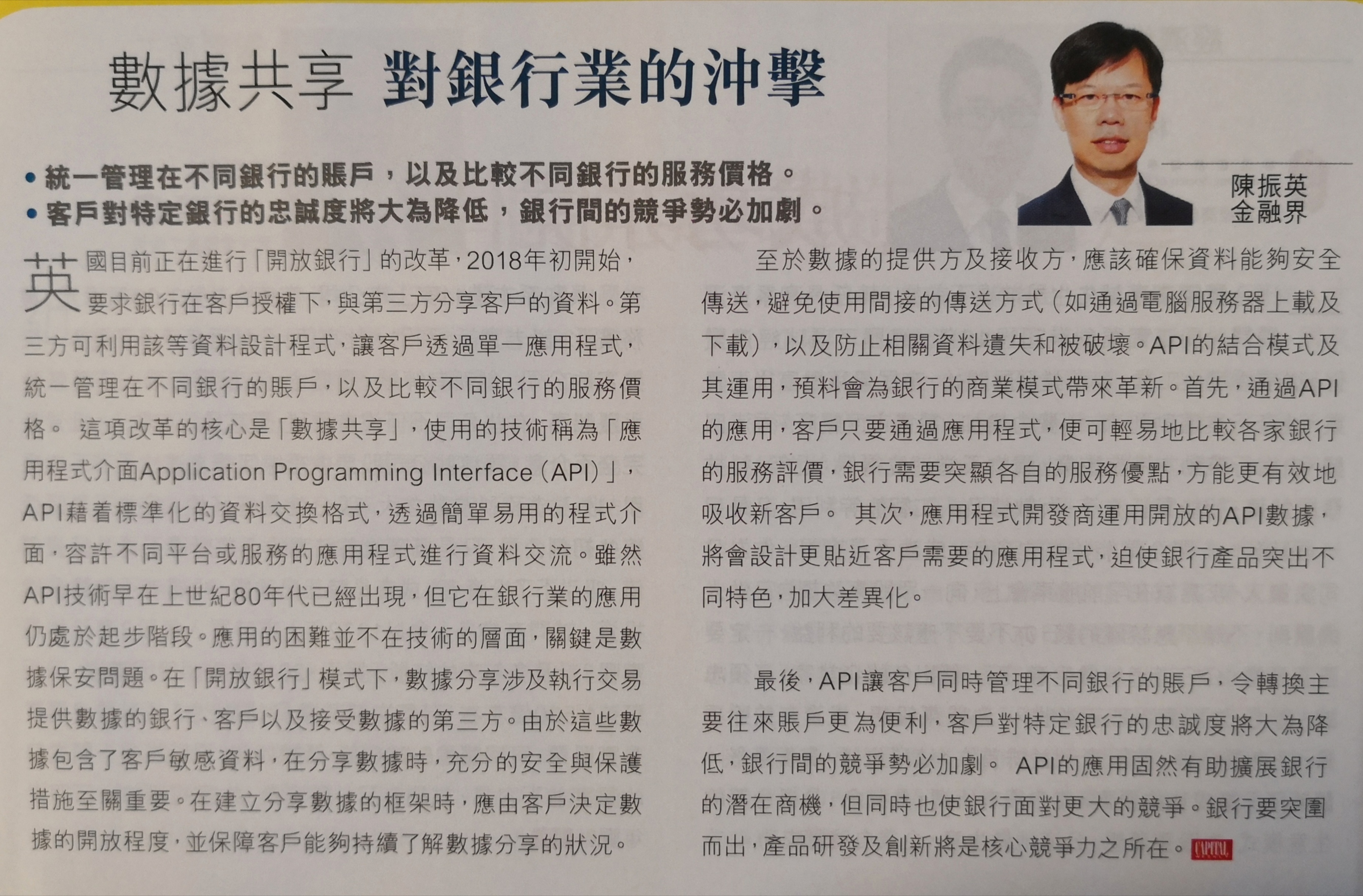
Translated version of Capital Weekly Legislative Councillor’s Column
The Impact of Data Sharing on the Banking Industry
The United Kingdom is currently undergoing “Open Banking” reform. Since early 2018, with prior consent from customers, banks have been required to share customer information with third party. Those third parties can make use of such information to design programmes which allow customers to manage different bank accounts through a single application and compare service charges of various banks. The core of this reform is “data sharing” and the technology being used is “Application Programming Interface” (“API”). API utilizes a standardized data exchange format to allow information sharing between applications on different platforms or services through a simple and user-friendly application interface. Although the API technology has emerged as early as in the 1980s, its application is still at an infancy stage in the banking industry. The difficulty in implementation lies not in the technological level as the key is data security. Under the “Open Banking” model, data sharing involves the bank which performs the transaction and data provision, the customer and the third party which received the data. As data contains customer-sensitive information, adequate security and protection measures are essential in the process of data sharing. When establishing a framework for sharing data, the customers must be able to determine the degree of openness of the relevant data and their understanding of the status of data sharing has to be sustainable.
With regards to the data providers and receivers, it is necessary to ensure that the data are securely transmitted and indirect transmission (such as uploading and downloading through computer servers) should be avoided. This will prevent relevant data from being lost and damaged. The integrated model and application of API is expected to revolutionize the business models of banks. First, customers can easily compare the evaluation of different banks’ services through the application of API. Banks will therefore be required to highlight their respective service advantages in order to attract new customers more effectively. And second, application developers will use open API data to design applications that better tailored to customers’ needs, which in turn compel banks to highlight their product features and enhance product differentiation.
Finally, API allows customers to manage accounts in different banks simultaneously, which makes it more convenient for the switching of their main operating accounts. Customers’ loyalty to specific banks will be greatly reduced and it will inevitably exacerbate the competition among banks. While the application of API will undoubtedly help the expansion of potential business opportunities of banks, they will face greater competition at the same time. To stand out in the open banking landscape, the core competitiveness of a bank will lie in its product development and innovation.
